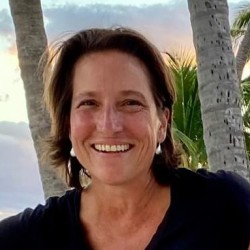Advancing society’s stewardship of the environment
Cornell University has a long and distinguished history in the fields of wildlife conservation and forest ecology and management, hosting the first New York State College of Forestry in the early 1900s. Our mission is to create knowledge and facilitate learning that will advance society’s stewardship of the environment. To pursue of our mission, faculty and students in the Department of Natural Resources and the Environment engage in basic and applied research of ecological processes at scales from organisms to ecosystems that provide a framework for investigating important aspects of human-accelerated environmental changes. Efforts occur locally, regionally, and at national and international levels. A strength of the department is the integration of our ecological knowledge with social science research to address important questions that provide insight into community-based resource management, habitat impacts, and climate change.
We guide students in systems-thinking at levels ranging from genes to ecosystems, and from individual actors to institutions and cultures, as well as toward expanded perspectives to address problems whose solutions reside at multiple scales. Examples of current programs in terrestrial ecology include conservation biology, invasive species management, biodiversity, and agroforestry in systems that range from forests to estuaries and wetlands. Examples of current programs in wildlife ecology include population management, behavioral ecology and habitat conservation using approaches that include quantitative models, conservative genetics, and community dynamics. Coursework for undergraduate and graduate students combines ecological and social science principles in an active-learning environment.
Affiliated Faculty
Professor
Natural Resources and the Environment Section
- (607) 227-1572
- bb22 [at] cornell.edu
Senior Extension Associate
Natural Resources and the Environment Section
Arthur A. Allen Director of Citizen Science
Laboratory of Ornithology
- dnb23 [at] cornell.edu

Director, NY Invasive Species Research Institute and Sr. Extension Associate
Natural Resources and the Environment Section
- (607) 255-2824
- cjb37 [at] cornell.edu
- (603) 536-3887
- nlc4 [at] cornell.edu
Associate Professor
Natural Resources and the Environment Section
- (607) 255-1368
- evan.cooch [at] cornell.edu
- (607) 227-5927
- pdc1 [at] cornell.edu
- (607) 255-5470
- tjf5 [at] cornell.edu

Leader, New York Cooperative Fish and Wildlife Research Unit and Professor Courtesy
Natural Resources and the Environment Section
- (607) 255-2841
- angela.fuller [at] cornell.edu
- (607) 255-4219
- grodsky [at] cornell.edu

Director of MPS Program. Senior Research Associate and Adjunct Associate Professor
Natural Resources and the Environment Section
- (607) 254-4912
- sjm11 [at] cornell.edu

Garvin Professor and Senior Director of Center for Avian Population Studies
Natural Resources and the Environment Section
- (607) 254-2176
- arodewald [at] cornell.edu

NYS Extension Forester, Senior Extension Associate
Natural Resources and the Environment Section
- (607) 592-3640
- pjs23 [at] cornell.edu

Director of the New York State Hemlock Initiative and Senior Extension Associate
Natural Resources and the Environment Section
- (607) 280-4064
- mcw42 [at] cornell.edu

Senior Extension Associate, Henry and Mildred Uihlein Director, Uihlein Maple Research Forest
Natural Resources and the Environment Section
- (518) 523-9337
- adw94 [at] cornell.edu
- (607) 255-6601
- jby1 [at] cornell.edu






Bernd Blossey tests a beetle as a biocontrol for water chestnut.
A group of researchers and students capture and band Canadian geese in Stewart Park.
Aaron Wightman, co-director at the Arnot Teaching and Research Forest, monitors a network of taps and tubing that draws sap from more than 6,000 maple trees. Photo by Jason Koski/Cornell University
NYISRI Director Carrie Brown-Lima, and Project Coordinator Audrey Bowe, with Robert Smith (SLELO PRISM) at a Hypena opulenta biocontrol test cage monitoring site in Northern New York.
Surveying for hemlock woolly adelgid predators after they have been released in New York for biocontrol of hemlock woolly adelgid.
Infested hemlock foliage from the Pacific northwest packed into rearing cages at the Cornell Sarkaria Arthropod Research Laboratory (SARL) Quarantine facility.






